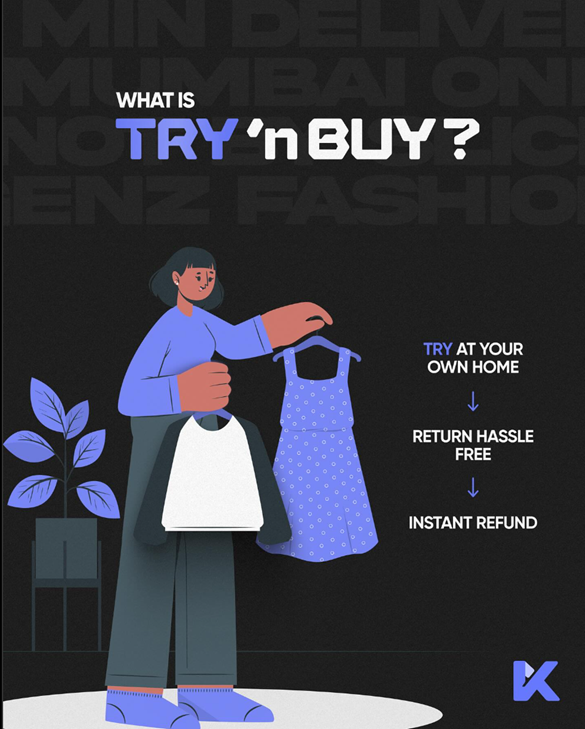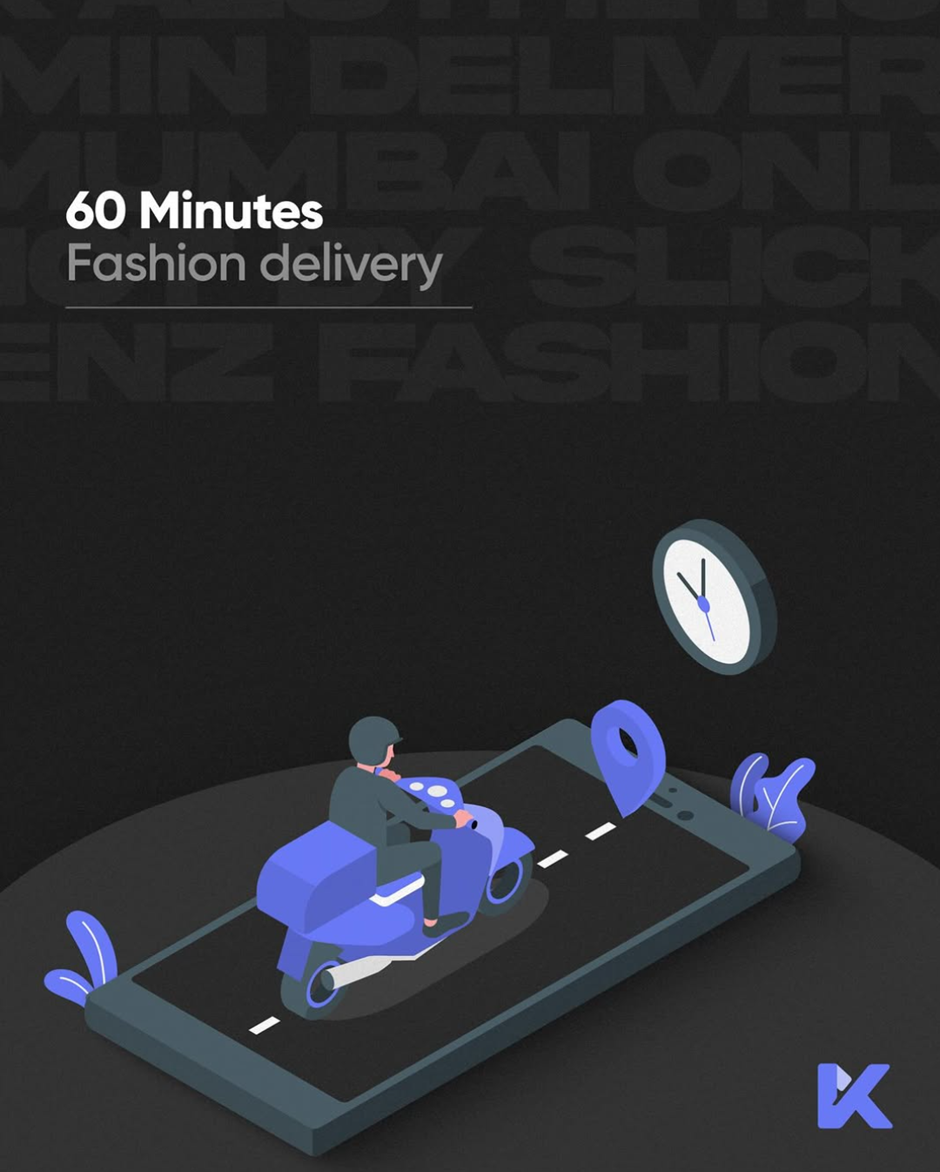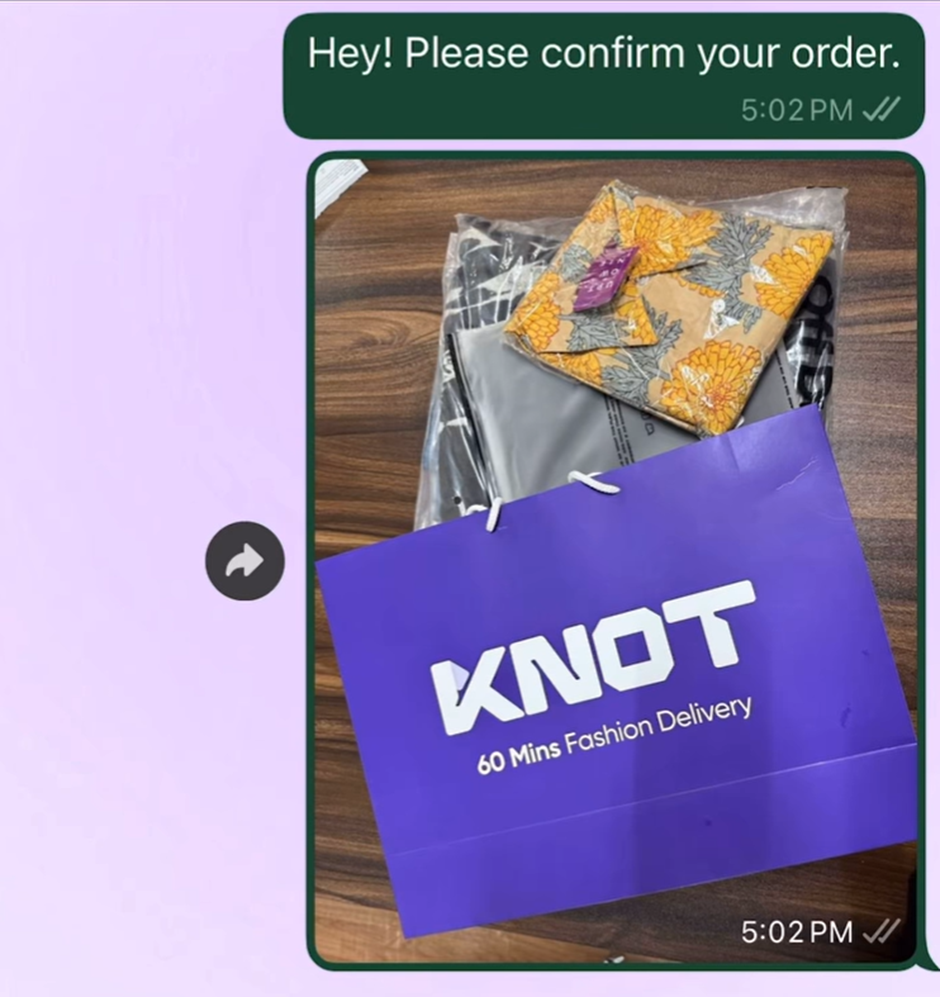India’s KNOT pioneers quick-commerce fashion with 60-minute delivery.
Solving the Returns Problem with the ‘Try & Buy’ Model

KNOT brand logo
Recently, news of the KNOT platform attracting investment has been gaining attention in the Indian fashion distribution market, leading to the emergence of a new model called quick commerce.
Indian fashion tech startup KNOT is a new e-commerce platform founded in Mumbai. The founders of Slick have pivoted their business model and are taking on a new challenge.
KNOT tackles the frequent returns that often arise during online apparel purchases. Its unique “Try & Buy” distribution model, where customers receive their items within 60 minutes of ordering and try them on before confirming their purchase, addresses the vulnerabilities of traditional online shopping. This approach aims to address the perennial issues of online apparel purchases—sizing errors, inconsistent fit, and high return rates—by reimagining the delivery method itself.
Launched in 2025, KNOT’s founders, Archit Nanda and Rachit Bansal, previously ran the anonymous social app “Slick.” After shutting down the service, they were exploring new opportunities when they noticed the desire for speed and dissatisfaction with online shopping, particularly among Generation Z. Drawing on this experience, they designed KNOT, a fashion distribution platform built around the core values of “speed,” “convenience,” and “discovery.”

KNOT Official Instagram
The figures KNOT boasts are impressive. The return rate on its platform is under 1%, a remarkable achievement considering the typical online shopping return rate of 15-25%. This figure not only improves the customer experience but also reduces fixed costs such as logistics, collection, repackaging, and inspection, leading to tangible revenue gains for both the platform and its partner brands.

KNOT Official Instagram
#The key is combining AI technology with urban logistics networks.
This achievement was made possible by the combination of AI technology and an urban logistics network. Based on customer data, purchase history, and regional trends, curated products were suggested, delivered within an hour, allowing customers to try them on right at their doorstep.
KNOT’s approach is not simply a fad, but rather an experiment in transforming the distribution ecosystem. This model, centered on AI technology and customer behavioral data, offers a solution that reduces the industry’s cost of excessive returns while providing a hyper-personalized experience. This is why the global retail industry is paying close attention.

KNOT Official Instagram
#Successful testing outside the city center is key
However, it’s still too early to predict success or failure. KNOT is still in its early stages, and experts point out that the sub-1% return rate figure they’ve proposed hasn’t been substantiated by official financial statements or audited accounting data.
A bigger challenge lies in maintaining logistics efficiency and expanding geographically. While rapid delivery has been possible in major cities like Mumbai and Bengaluru, expanding across India or Southeast Asia will likely face limitations in logistics infrastructure. Outside urban areas, delivery delays, increased collection costs, and operational burdens could all arise simultaneously, raising questions about the sustainability of the model.
Furthermore, real-time delivery and try-on/return systems entail complex operational structures, including increased logistics staff waiting times, increased costs for handling contaminated products, and repackaging and re-inspection. This constantly challenges the balance between short-term cost efficiency and long-term profitability.
Despite this, KNOT has secured approximately $3 million in funding and is currently working with over 70 brands. Partnering with numerous brands, including Offduty, Uptownie, Campus Sutra, The Souled Store, and Diamond Lady, KNOT has established brand awareness among Gen Z in India and has announced plans to expand into other cities and Southeast Asia.
Moreover, quick commerce, which enables the rapid delivery of goods like groceries and food, is being introduced to the fashion market in India, drawing increasing interest in this market. Examples include Blip, which has experimented with a fast fashion delivery service, Slikk, a fashion-focused quick commerce platform, and fast fashion brand NEWME’s 60-minute delivery service. This is also a topic worth watching in the domestic fashion commerce market, which is strengthening its fast delivery services, including same-day and early-morning delivery.
